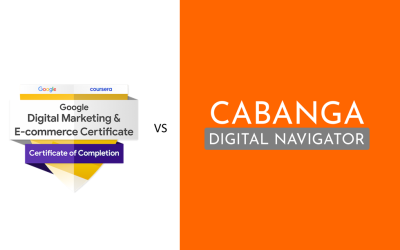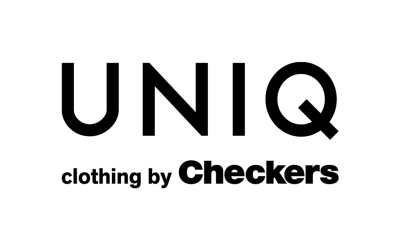In my experience, whether in South Africa, Kenya, or the United States, the foundation of a successful e-commerce business hinges on several critical elements. Allow me to guide you through these steps in detail, ensuring your journey is both seamless and rewarding.
My advice here is based on my expertise and experience I acquired since 2011, and have built and marketed ECommerce websites in South Africa, United States, Kenya, Nigeria, Egypt, Zimbabwe, Zambia, Botswana, and other African countries (ran ads in all 54).
From my second home country, Zimbabwe, I had the privilege of being the Data Analyst of the largest Retail Census, analyzing data for over 30,000 retail outlets for Unilever SEA and its partners over a couple years in the 2000s.
Anyways, grab a coffee and let’s start from the beginning of every business, and move from there.
Develop a Comprehensive Plan
Firstly, it’s essential to get a general plan ready. This doesn’t have to be overly complicated but must indicate your target market, your go-to-market strategy, your catalogue depth, your scaling strategy, and so forth. A well-thought-out plan serves as a roadmap, helping you navigate through the complexities of the e-commerce landscape. Try business planning strategy firms like GetAPlan.Africa for good advisory services.
Choose a Memorable Brand Name
Next, get a good name for the business or brand you are building. A memorable and meaningful name not only helps in brand recall but also establishes a strong identity in the market. This name should resonate with your target audience and reflect the essence of your business. Make sure you have your brand archetypes in order, as personality and messaging of the brand must be clear. You can read the book “Building a Luxury Brand, Digitally!”.
Utilize E-commerce Friendly Brand Colors
When designing the website, use e-commerce friendly brand colors for the user interface. Colors play a crucial role in user experience and can influence purchasing decisions. Choose colors that are not only aesthetically pleasing but also align with your brand’s personality and values. UX is key in all things internet, and this must be set in stone from the beginning. Try Kupa.Africa for help on Brand Guide building for online brands.
Build with the Right CMS
Building the website using an e-commerce content management system (CMS) is vital. Platforms like WooCommerce, Magento, Joomla, and others provide the necessary tools and functionalities to set up a robust online store. These CMS options are tailored for e-commerce, offering scalability and flexibility. I am personally partial to WordPress, though started with Joomla and Magento since 2011 when I built my first e-commerce website for a US-Zimbabwe business owner of arts and crafts products.
Integrate Relevant ECommerce Plugins
Ensure you have the relevant e-commerce related plugins, components, or modules for SEO, social sharing, analytics, store management, and so forth. These tools enhance the functionality of your website, improve user experience, and boost your online visibility. There are so many plugins to choose from but from my experience, handy tools and plugins include Meta Tag Manager, RankMath, Google Site Kit, SVG Image Support, WP Optimize, WP Table Builder, Complianz, Trustindex.io, Chatty, Divi, and the like.
Optimize Product Data and Images
Make sure you put in the correct data for your stock items to have them well optimized from the start. Use high-quality images that have all boxes ticked on Product SEO. Properly optimized product data and images improve search engine rankings and enhance the shopping experience, leading to higher conversion rates. There must be a platform consistency on all platforms – website, online marketplace, and merchant center (details below).
Sign Up to Relevant Marketplaces
Sign up to relevant marketplaces such as Etsy.com, Amazon.com, Takealot.com, and others that are within your target market. Being present on these platforms increases your reach and provides additional sales channels, thereby boosting your revenue potential. Whilst selling on your website, there are benefits to selling on other platforms as all serve as shop branches in different malls, and your website is like your head office or showroom. There are many South African brands that sell on marketplaces such as amazon.co.za, takealot.com, and makrobusiness.co.za, just as they do on their main website. This really works.
Connect with Google and SEO Tools
Sign up and connect with Google tools such as Analytics, Ads, Merchant Center, and Search Console, ensuring that all are interconnected. These tools provide valuable insights, helping you track performance, optimize campaigns, and make data-driven decisions. Make sure you connect thereafter you connect in SEMrush.com or Ahrefs.com, to make that the center of your intelligence-based marketing strategy for scaling the business. Without this connection of tools for analysis, you will be flying blind.
Engage on Social Media Platforms
Create and start posting anything related on social media platforms such as Instagram, Threads, Facebook, X, and so forth. Social media is a powerful tool for building brand awareness, engaging with customers, and driving traffic to your website. Instagram is a must for all Ecommerce stores, with success stories such as Mr Price being evidence. In 2021, after some research, I wrote an article about how Mr Price is the largest Ecommerce store on Instagram in South Africa. Also read my book called “The Creator Economy in South Africa” for more on using social media to scale a business, including ECommerce businesses.
Run Initial Ad Campaigns
Start running ad campaigns to activate the brand and generate data for analytics and future decision making. Initial ad campaigns help in building brand visibility, attracting potential customers, and gathering valuable data for refining your marketing strategies. Activate a brand, please, activate the brand, to grow from zero followers to thousands.
Activate Your Go-to-Market Strategy
With the groundwork laid, activate your go-to-market strategy. This involves launching your products, promoting them through various channels, and executing your marketing plans to reach your target audience effectively. You need to be guided by your business plan, whether in-depth or just a short one pager. Stick to your plan.
Begin Selling and Generating Leads
Start selling to individuals you know or can attract using lead generation adverts. Personal connections and targeted lead generation efforts help in gaining initial traction and building a loyal customer base. Since 2021, I led the lead generation for an accounting firm with an ECommerce approach of offering the services as a product, and mass marketing it using Google, Facebook and Instagram Ads for lead generation, and channeling the leads into a Zoho managed CRM and email marketing campaign tool, with over 2,000 leads generated to date.
Analyze Data and Optimize Digital Marketing
Start doing analysis of the data generated and activate shopping ads, along with other Digital Marketing tactics. Continuous analysis and optimization of your marketing efforts ensure sustained growth and success in the competitive e-commerce landscape. As
By following these steps, you can build a thriving e-commerce business. Each element plays a crucial role in establishing a strong online presence, attracting customers, and driving sales. With a clear plan, effective tools, and strategic execution, your e-commerce venture is set for success.







